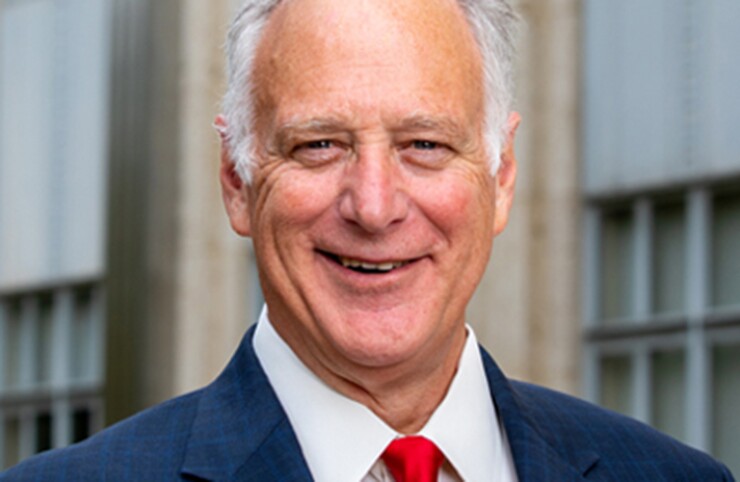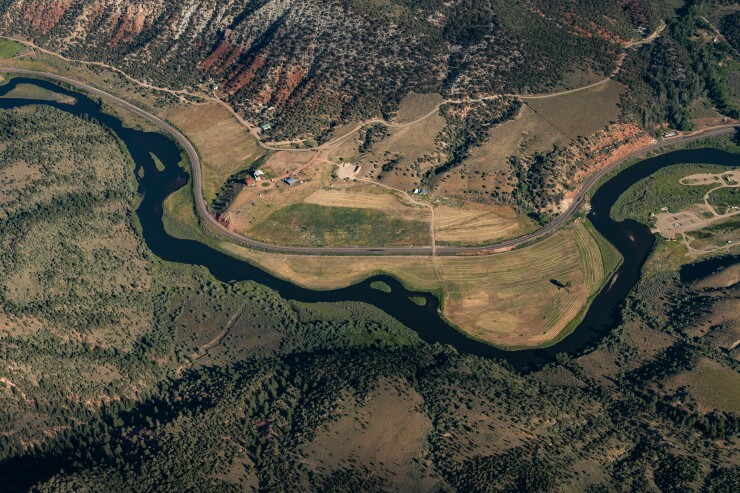Costly plans to tackle climate and water supply challenges in the Southwest may be stalling amid concerns over funding.
Austin, Texas, officials tapped the brakes last week on seeking voter approval for general obligation bonds that would help finance a comprehensive climate implementation program, pushing a potential ballot measure for the debt beyond this November's general election.
In Arizona, the hunt for new water sources was dealt a setback with a fiscal 2025 state budget that provided no funding for the effort.

On Thursday, the Austin City Council passed a resolution in a 9-1 vote calling for a bond election no later than November 2026 in the wake of concerns raised by Mayor Kirk Watson that more time was needed to develop the program and its funding sources.
"There is a real sense of urgency to this, trying to do this in a collaborative way consistent with past processes, and consistent with what we might do with other items besides just climate investment in terms of comprehensive bond proposals," Watson said at the council meeting.
In February, the council signaled a bond election could potentially take place this November
The resolution listed utility rates and fees, general fund expenditures, grants, and bonds that could be approved by voters — as soon as the Nov. 5 general election — as possible funding options.
The program's initial price tag
Some speakers at Thursday's council meeting argued against delaying a climate bond election.
"We understand the issues and the problems with the bond election in 2024 to fund climate action," Craig Nazor, conservation chair for the Sierra Club's Lone Star Chapter, said. "However, the thermometer will not care about any city's bond rating."
In a June 28 city message board post, Watkins said staff needed
"We've also been briefed regarding the best financial practices we should follow related to bonding generally and our city's comprehensive bond program," the post added.
The Texas capital, which is rated Aa1 by Moody's Ratings, AA-plus by Fitch Ratings, and AAA by S&P Global Ratings, had
Austin has other financing tools to use besides GO bonds, including certificates of obligation and revenue bonds, which could be tapped for the climate program, according to Mayor Pro Tem Leslie Pool.
"We're looking forward to the city manager bringing us the recommendations on timing, and which projects and what that cadence looks like so that we can launch into these projects as they are prepared and ready to go," she said last week.
Thursday's resolution directs City Manager T.C. Broadnax to conduct public briefings on the city's current bond indebtedness and ratings for the purpose of planning future bond proposals in addition to recommending a comprehensive climate implementation program and bond package.
The measure also calls for the establishment of a bond election advisory task force.
"The task force will consider current and future planned projects as well as past bond considerations when recommending a comprehensive bond package," the resolution stated. "Such considerations may include multimodal mobility infrastructure, water and wastewater infrastructure, parks, and other items determined by the task force in consultation with city staff."
In Arizona, a nearly $1.5 billion state budget shortfall took a toll on a long-term water augmentation fund created by the legislature in 2022 with the intention of appropriating $1 billion over three years to help finance new water sources.
Full funding of $333 million only happened in fiscal 2023, with the fiscal 2024 appropriation falling short. Gov. Katie Hobbs proposed a fiscal 2025 budget that called for
The enacted budget for the fiscal year that began July 1 appropriated no money for the water augmentation fund, which also lost $97 as lawmakers swept up unspent cash to tackle the deficit. Its current balance is $443 million.

The Arizona Water Infrastructure Finance Authority (WIFA), which oversees the fund, passed a resolution in June, noting that drought remains a major challenge for the arid state.
"Decreasing the (Long-term Water Augmentation Fund's) balance to less than half of the promised appropriation puts at risk the authority's ability to attract the private capital necessary and increases the risk that the authority will be unable to participate fully in the types of projects capable of meeting the Legislature's goals of developing or facilitating water conservation, reuse and augmentation projects for the benefit of Arizona," the resolution stated.
It also called on state policymakers to provide future funding and additional non-financial tools and powers to WIFA to aid its hunt for water.
The authority has gotten some indications from state officials that the funding cut should be temporary, according to WIFA spokeswoman Chelsea McGuire.
"We are taking this as a positive sign that Arizona's policymakers are willing to state publicly their support for WIFA and that they're on board with our mission and path going forward," she said in an email.
Meanwhile, work is continuing on the
Last year, WIFA Director Chuck Podolak said
Arizona's top two water sources are





